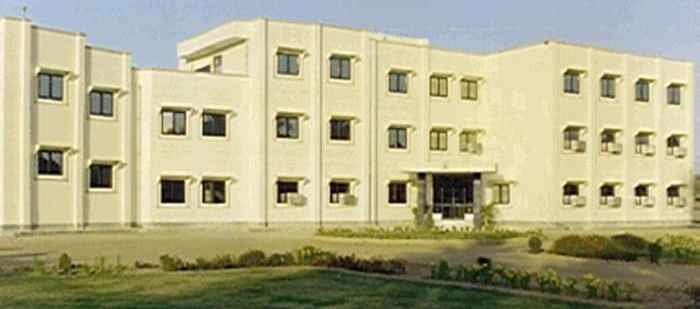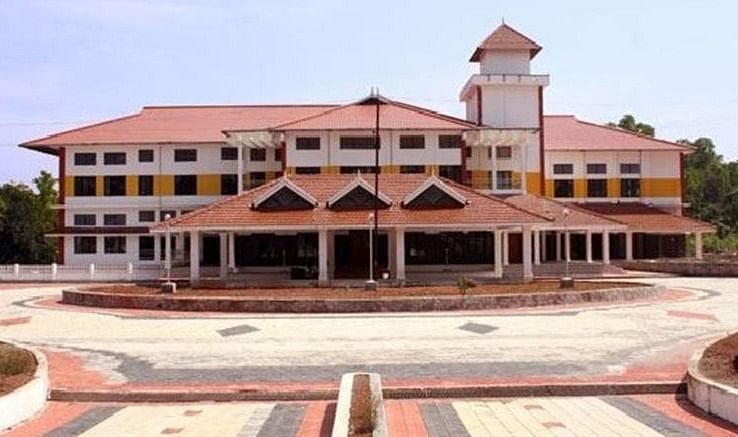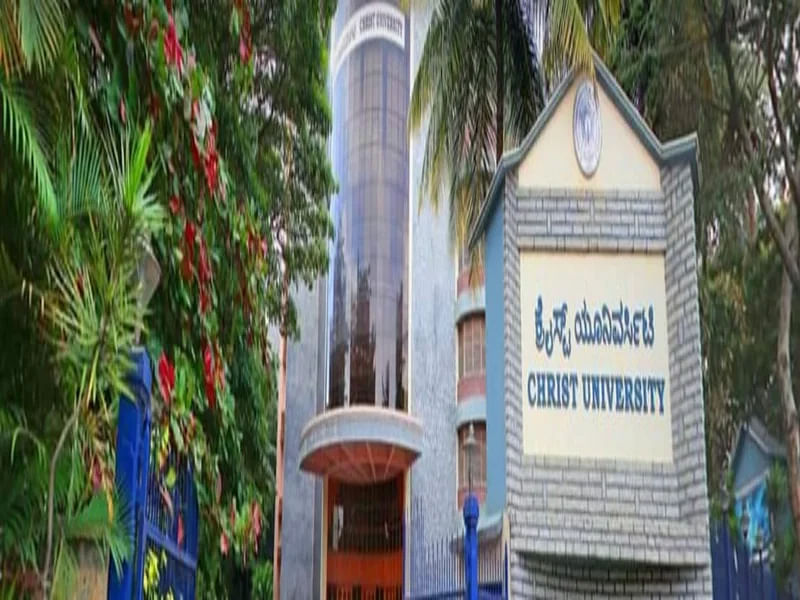B.Sc Electronics: Course Details, Eligibility, Fees, Admission

This programme will provide Students who want to major in electronics basics at the undergraduate level can take the 3-year BSc Electronics course. The length of the course varies for students who decide to pursue it remotely, from a minimum of three years to a maximum of six years. The students in this course must study a number of specialised topics from the BSc Circuits syllabus, including analogue electronics, data structures, electromagnetics, etc. Candidates for admission to the BSc Electronics programme must have successfully completed their upper secondary degree from an accredited educational institution. However, depending on the school, the eligibility may change.
Table of Contents
- About B.Sc Electronics
- B.Sc Electronics Eligibility Criteria
- B.Sc Electronics Admission Process
- Who Should Pursue a B.Sc Electronics?
- Types of B.Sc Electronics
- Popular Entrance Exams for B.Sc Electronics
- Study B.Sc Electronics in India
- Top B.Sc Electronics Colleges in India
- Fee Structure for B.Sc Electronics
- Integrated/Bridge Courses
- Syllabus and Subjects for B.Sc Electronics
- Why Choose B.SC Electronics Course?
- B.Sc Electronics Course Comparison
- Preparation Tips for B.Sc Electronics
- Scope for Higher Education
- Salary of a B.Sc Electronics Graduate
- Career Options After B.Sc Electronics Graduation
- Skills That Make You The Best B.Sc Electronics Graduate
B.Sc Electronics Course Details
| Degree | Bachelors |
| Full Form | Bachelor of Science in Electronics |
| Duration | 3 Years |
| Age | Age limit between 19-21 |
| Subjects Required | Physics, Chemistry , Maths and Biology |
| Minimum Percentage | 50% |
| Average Fees | ₹10K - 1 LPA |
| Similar Options of Study | B.Sc (Physics), B.Sc (Computer Science), B.Sc (Applied Physics) etc. |
| Average Salary | INR 7.93 L per annum |
| Employment Roles | Senior Software Engineer, Software Engineer, Project Manager, Operations Manager, Solutions Architect, HR Manager, Senior Project Manager, High School Teacher, Software Developer etc. |
| Top Recruiters | Tata Consultancy Services Limited, Cognizant, HCL Technologies Ltd, Techmahindra Ltd, Wipro Technologies Ltd, Axis Bank, Nucleus Software, Royal Bank of Scotland, Applied Materials Inc etc. |
About B.Sc Electronics
B.Sc Electronics is a programme that specialises in the study of giving students information and abilities that are relevant to the area. B.Sc Electronics syllabus is structured so that students can have access to and expand their academic foundation through theoretical tests given at the end of each semester while also strengthening their practical abilities through lab exercises, experiments, and research. B.Sc Electronics job scope is extensive providing careers as software engineers, testers, etc.
B.Sc Electronics Eligibility Criteria
Students who want to enrol in the B.Sc Electronics programme must pass Class 12 or the equivalent from an accredited board with a minimum overall score of 55% and must have completed the required courses in physics, chemistry, and mathematics. In addition to meeting the conventional B.Sc Electronics eligibility requirements, students must pass the common entrance exams. Additionally, students in the reserved category and those with disabilities may receive some relaxation.
B.Sc Electronics Admission Process
The candidate's performance on the qualifying exam determines whether they are admitted in full or in part to the B.Sc Electronics programme. Whether an applicant is admitted to the programme depends on how well they do on a national, state-level, or college-level entrance exam. Given the reputation of the exam as being challenging, enrolling in coaching programmes can aid students in learning the subject. Candidates must also meet the minimal requirements for B.Sc Electronics eligibility, which include obtaining an Electronics bachelor's degree and performing well on the Electronics test.
Even though the B.Sc Electronics admissions procedure varies from institution to college, the normal actions one should take to obtain admission are stated below.
How to Apply?
In preparation for the COVID issue, the majority of institutions are transitioning their admissions processes entirely online. Students must go to the official websites of the universities they are going to begin the application process. Students may also enrol offline by visiting the college of their choosing and submitting an application in person along with the required documentation.
Selection Process
Based on their academic performance in their Electronics bachelor's degree from an accredited university, candidates are chosen in a merit-based selection process. For admission-based selection, students are required to take the entrance exam. Candidates are then qualified for the subsequent stage of admission. The following admissions procedures vary depending on the college.
Read More on B.Sc Admission
Who Should Pursue a B.Sc Electronics?
B.Sc Electronics is for students who want to get into the Electronics field. This course is available for candidates who have graduated from a recognised university. For entry into this programme, no specific academic preparation is needed. Candidates who have completed the course can find job opportunities with top Service Engineer, Broadcast and Sound Technician, Electronic Sales Manager, Electronics and Communication Consultant, Electronics Technician, Technical Leader, Project Manager, Manufacturing Head, Site Maintenance Technician, and Marketing Manager that is always looking out for B.Sc Electronics graduates. As a result, after finishing this course, students will have several work opportunities.
When To Do B.Sc Electronics?
If a student wants to pursue a career in Electronics, he or she should begin at the 10+2 level or the equivalent from an accredited board with a minimum overall score of 5% and must have completed the required courses in physics, chemistry, and mathematics.
Types of B.Sc Electronics
Both full-time and part-time options are available to aspirants for the course. The several B.Sc Electronics course types are detailed below:
Full-Time
The B.Sc Electronics programme lasts three years and is full-time. In this subject, practical expertise trumps academic understanding. The advantage of a full-time course is that students can gain much more exposure, experience, and knowledge through close contact with other students and teachers. B.Sc Electronics is a six-semester full-time programme.
Part-Time
Students who are unable to attend regular classes should enrol in the part-time B.Sc Electronics course. The programme lasts for three years. The benefit of taking a part-time course is that students can do so while also working, going to school, etc. Some institutions offer part-time B.Sc Electronics programmes.
Distance
The distance B.Sc Electronics programme for 3 years is not provided in colleges/institutions because some colleges don’t provide long-B.Sc Electronics distance learning for any students.
Popular Entrance Exams for B.Sc Electronics
To be accepted into the B.Sc Electronics programme, applicants must pass the admissions tests. The institution in charge of administering the entrance exam may choose to set the requisite cut-off scores. Those who pass the B.Sc Electronics entrance exam will be able to participate in the final selection process. The following are some of the most well-liked B.Sc Electronics admission tests:
A Quick Glance at the B.Sc Electronics Entrance Exams
The requirements for taking the entry above exams vary depending on the organisation administering them, therefore they are entirely dependent on them. The following are some general recommendations for admissions tests:
- The exam can be offline or online.
- Three components make up the questions paper. Questions with an electrical theme can be found in the general aptitude, Electronics mathematics, and discipline-based sections.
- The exam duration is 3 hours.
- The question paper is set in English.
- Questions will be MCQ based
- There may be negative marking schemes.
Study B.Sc Electronics in India
India is home to some of the best B.Sc Electronics universities. Candidates have a variety of choices when it comes to the best B.Sc Electronics education, depending on their preferences. Depending on the sort of Electronics curriculum offered, candidates must choose wisely. The following is a list of the top universities in India that provide B.Sc Electronics degrees:
Top B.Sc Electronics Colleges in India
Below is the list of the best B.Sc Electronics Colleges in India:
| Sl.No | Name of the College |
| 1 | Hindu College |
| 2 | Mount Carmel College |
| 3 | St. Xavier’s College |
| 4 | Kristu Jayanti College |
| 5 | The Oxford College of Sciences |
| 6 | St. Aloysius College |
Top B.Sc Electronics Colleges in Delhi
India’s capital city is home to some of the best institutions for B.Sc Electronics in India. Check the table below for the top B.Sc Electronics colleges in Delhi:
| Sl.No | Institution |
| 1 | DTU |
| 2 | JMI |
| 3 | IIT Delhi |
| 4 | IIIT |
| 5 | Jamia Hamdard |
Read More: B.Sc Electronics Colleges in Delhi
Top B.Sc Electronics Colleges in Pune
Pune is home to some of the premier institutions for B.Sc Electronics in India. Check the table below for the best B.Sc Electronics colleges in Pune:
| Sl.No | Institution |
| 1 | COEP |
| 2 | BVUCOE |
| 3 | AISSMS College of Electronics |
| 4 | Dr DY Patil Institute of Technology |
| 5 | MIT WPU |
Read More: B.Sc Electronics Colleges in Pune
Top B.Sc Electronics Colleges in Bangalore
The capital city of Karnataka is renowned around the country for colleges offering top B.Sc Electronics programmes. Check the table below for the best B.Sc Electronics colleges in Bangalore:
| Sl.No | Institution |
| 1 | Atria Institute of Technology |
| 2 | NHCE |
| 3 | Jain University |
| 4 | DSCE Bangalore |
| 5 | RVCE |
Read More: B.Sc Electronics Colleges in Bangalore
Top B.Sc Electronics Colleges in Chennai
The capital city of Tamil Nadu has some of the best colleges for B.Sc Electronics courses in India. Check the table below for the best B.Sc Electronics colleges in Chennai:
| Sl.No | Institution |
| 1 | IIT Madras |
| 2 | College of Electronics |
| 3 | VIT |
| 4 | Madras Institute of Technology |
| 5 | HITS |
Read More: B.Sc Electronics Colleges in Chennai
Top B.Sc Electronics Colleges in Jaipur
The Capital City of Rajasthan has some premier institutions in the country for B.Sc Electronics. Check the table below for the top colleges for B.Sc Electronics in Jaipur:
| Sl.No | Institution |
| 1 | Manipal University |
| 2 | MNIT |
| 3 | NIMS University |
| 4 | Vivekananda Global University |
| 5 | Jaipur National University |
Read More: B.Sc Electronics Colleges in Jaipur
Top B.Sc Electronics Colleges in Mumbai
Mumbai also has some of the best institutions for B.Sc Electronics in India. Check the table below for the top B.Sc Electronics colleges in Mumbai:
| Sl.No | Institution |
| 1 | IIT Bombay |
| 2 | VJTI Mumbai |
| 3 | SPCE Mumbai |
| 4 | NMIMS Sunandan Divatia School of Science |
| 5 | KJ Somaiya College of Electronics |
Top B.Sc Electronics Government Colleges
There are several top Government Colleges offering quality B.Sc Electronics programmes across the country. Check the table below for the top B.Sc Electronics government colleges in India:
| Sl.No | Institution |
| 1 | IIT Kharagpur |
| 2 | IIT Kanpur |
| 3 | BITS Pilani |
| 4 | NIT, Karnataka |
| 5 | Netaji Subash Institute of Technology |
Top B.Sc Electronics Private Colleges
India has seen significant growth in the number of quality B.Sc Electronics private colleges that offer some of the best programmes in the country. Check the table below for the top B.Sc Electronics private colleges in India:
| Sl.No | Institution |
| 1 | Manipal University, Jaipur |
| 2 | VIT Chennai |
| 3 | BVUCOE Pune |
| 4 | NIT Trichy, |
| 5 | Jain University, Bangalore |
Fee Structure for B.Sc Electronics
The B.Sc Electronics fee is not fixed and depends on many factors. Some of the factors which affect the B.Sc Electronics fees include location, faculty, demand, infrastructure, and the facilities available to the students. The average B.Sc Electronics course fee in India is around INR 3 - 20 LPA.
| Sl.No. | Name of the College | Total Fee Structure |
| 1. | Hindu College | INR 17.33 PA |
| 2. | Mount Carmel College | INR 42 PA |
| 3. | St. Xavier’s College | INR 9.5 PA |
| 4. | Kristu Jayanti College | INR 51 PA |
Integrated/Bridge Courses
Integrated B.Sc Electronics Course: The Integrated Bachelor of Science in Electronics programme was creatively created to equip students with the skills they need to succeed in a variety of management fields when they graduate. The process of combining several software sub-systems into a single, cohesive system is known as Electronics integration. The Bachelor of Science [B.Sc] (Electronics) is mostly a theoretically-based programme that covers a variety of topics in-depth, but theoretically, with only a few practical courses. This transforms people into ethical and socially conscious leaders when combined with enthusiasm for innovation and learning.
Eligibility criteria: in the programme they must have passed Class 12 or the equivalent from an accredited board with a minimum overall score of 55% and must have completed the required courses in physics, chemistry, and mathematics.
Admission Process: Admission is based on an entrance exam, followed by Group Discussion or Personal Interview.
Syllabus and Subjects for B.Sc Electronics
A theoretical and internal study technique are both provided to students in the B.Sc Electronics degree. The skills necessary for Electronics can be learned by students. There is a defined format for the B.Sc Electronics syllabus programme. The general subjects that will be covered in the course are listed below:
- Electrostatics
- Capacitors unit of capacity
- Magnetic effects of current
- Diode circuits and power supplies
- Transistor circuits
- Medical electronics
- Industrial Electronics
- Power Electronics
- Computer networks
Read More: B.Sc Electronics Syllabus and Subjects
Why Choose B.SC Electronics Course?
Before enrolling in an Electronics course, prospective students should become as knowledgeable as possible about the subject matter. By breaking the question "Why to choose B.Sc Electronics?" into three manageable parts, the answer is made clearer:
What is B.Sc Electronics All About?
A professional master's course is the B.Sc Electronics. Students learn about the marvels of Sound Technician, Electronic Sales Manager, Electronics and Communication Consultant theory and analysis. Students with B.Sc in electronics have the choice of continuing their education or looking for employment.
What Does a B.Sc Electronics Graduate Do?
After receiving their degrees, they will be able to create, Service engineer, Broadcast and Sound Technician, Electronic Sales Manager, Electronics and Communication Consultant, Electronics Technician, Technical Leader, Project Manager, Manufacturing Head, etc. Electronics are essential to developments in sectors including Freelance Developer and Researcher. Graduates will be knowledgeable in Electronics skills. Here are some of the most common features:
Broadcast and Sound Technician: The responsibility for operating, assembling and maintaining the electrical equipment for radio or television concerts, sound recordings, broadcasts, and movies, as well as in classrooms and office buildings, falls to broadcast and sound technicians.
Reasons Why B.Sc Electronics Can Fetch You a Rewarding Career?
After earning a B.Sc in Electronics, both fresher and experienced professionals can pursue a variety of career opportunities. It depends on a person's aptitudes, academic performance, skills, and experience. Some of the reasons are
- Demand: B.Sc Electronics is a great career choice for those with a lot of imagination and ideas. Electronics engineers with the necessary skills are in high demand in developing nations like India to fill positions at critical manufacturing divisions in both private and public sector enterprises. The local Electronics businesses now require qualified professionals due to the worldwide supply chain networks.
- Career Growth: Graduates of B.Sc Electronics can choose from a variety of positions. After accumulating Electronics expertise, candidates can grow in their jobs.
- Skill Development: Students get a lot of opportunities in enhancing their design and creativity skills that are required in the B.Sc Electronics.
Read More: B.Sc Electronics Jobs & Scope
B.Sc Electronics Course Comparison
Each B.Sc. programme teaches the fundamentals of business. These are some fundamental Electronics talents that, when combined with work-specific skills based on core functions and concentrations, will help you land a solid position. Below is a comparison of the B.Sc Electronics course with the other courses.
B.Sc Electronics vs B.Tech Electronics
The table below showcases the differences between B.Sc Electronics and BTech Electronics:
| Course | B.Sc Electronics | B.Tech Electronics |
| Full-Form | Bachelor of Science in Electronics | Bachelor of Technology in Electronics |
| Stream | Science | Science |
| Course Duration | 3 years | 4 years |
| Eligibility | Passed Class 12 or equivalent from a recognized board with Physics, Chemistry and Mathematics as compulsory subjects. | 10+2 with a minimum 75% aggregate in PCM and English Mathematics as compulsory subjects. |
| Entrance Exams | BHU UET;JET;NPAT;SUAT;CUET | JEE Main, JEE Advanced, MHTCET, AMUEEE, BVP CET |
| Top Colleges | Mount Carmel College, Hindu College, St. Xavier’s College, etc. | Indira Gandhi College of Electronics, IIT Guwahati, RV College of Electronics, IIIT Bhubaneswar, etc. |
| Fees | INR 10 - 1.5 LPA | INR 1 - 2 LPA |
Read More: B.Tech Electronics
Preparation Tips for B.Sc Electronics
When choosing to pursue a B.Sc. in Electronics, students should consider several things. The following collection of essential study tips can help students succeed in their studies so they can pass the course and the tests.
Syllabus: The student must fully comprehend the course syllabus. This is the first and most crucial step in the preparation process.
Exam Pattern: Recognize exam structure and the types of questions that are frequently asked. There is a very good chance that the students will be given multiple-choice questions.
Important topics: Students should focus more on the important topics because they are asked about them more frequently. As you read through the chapters, you must keep in mind these sections.
Practice: Utilize sample exams and test questions from prior years to prepare for questions.
Scope for Higher Education
Aspirants can pursue higher studies after obtaining a B.Sc in Electronics. Some of the top courses for higher studies in the field of Electronics are as follows:
Salary of a B.Sc Electronics Graduate
Depending on the specialisation that candidates choose, the pay for B.Sc Electronics graduates varies. In addition to experience, geography, and the industry they work in, B.Sc Electronics salaries in India may also be influenced by several other variables.
Graduates can increase their salary as they obtain more work experience. Starting salaries for B.Sc Electronics positions often range from INR 3 to 30 LPA. [Source: PayScale].
Read More: B.Sc Electronics Job Salary
Career Options After B.Sc Electronics Graduation
For B.Sc Electronics students, there are many positions available in both the public and private sectors. The job roles will change depending on the specialisation one has chosen. Numerous job possibilities with competitive pay packages are available for B.Sc Electronics graduates in the following job profiles:
- Service Engineer
- Broadcast and Sound Technician
- Electronic Sales Manager
- Electronics and Communication Consultant
- Electronics Technician
- Technical Leader
- Project Manager
- Manufacturing Head
- Site Maintenance Technician
- Marketing Manager
Skills That Make You The Best B.Sc Electronics Graduate
A graduate degree in Electronics has different course requirements depending on the university and programme you choose. Students that take Electronics courses will also get expertise in that area. They include analytical thinking, critical thinking, and self-learning as well as effective communication, time management skills, and creative thinking. Some of the abilities that B.Sc Electronics students should have:
- Attentive
- Interpersonal Skills
- Quantitative Aptitude
- Initiative
- Communication skills
























